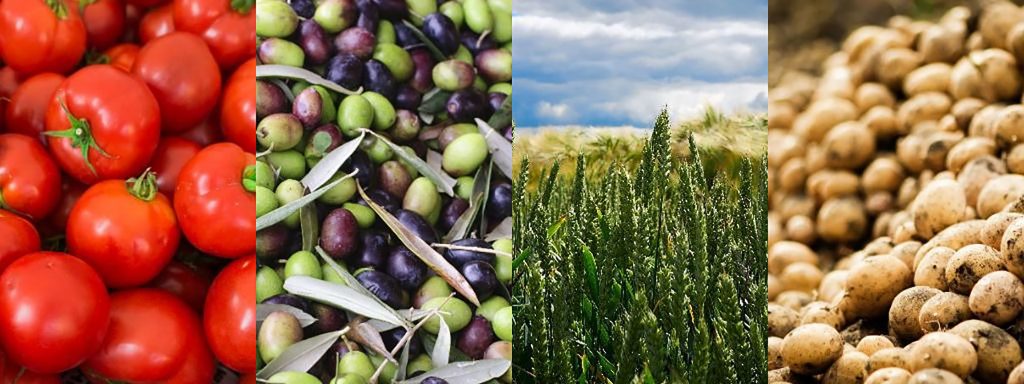A new study assesses the current state of knowledge surrounding the extraction and uses of valuable compounds and residue materials from four agricultural crops: cereals, olives, potatoes and tomatoes.
Published in the special issue of “Sustainability in Food Supply chain and Food Industry” Sustainability Journal, the study has been conducted as part of the EU-funded Agrimax project.

From farmers to consumers, vast amounts of agricultural and food waste are being generated throughout the whole supply chain. Approximately one third of all food produced globally is wasted every year. In Europe alone, around 90 million tonnes of food waste and 700 million tonnes of agricultural waste are generated annually. Therefore, new strategies for processing added value from these wastes are needed to reduce the environmental burden and provide new income streams from waste.
The authors found that high-value compounds can be extracted in significant quantities from cereals, olives, potatoes and tomatoes wastes by using a range of technologies, such as ultrasound-assisted or solvent extraction and thermal or enzymatic treatments. These compounds have applications in food additives, bio-based packaging and agricultural materials, whilst the by-products can be further processed to produce other valuable compounds such as fibres, biogas and fertiliser. Using agricultural wastes in new applications will maximise the EU’s sustainability and has the potential to make a significant economic impact along the supply chain.
Researchers from Fraunhofer, an Agrimax project partner said: “From this review we were able to demonstrate that significant quantities can be extracted using affordable technologies. However this is just the beginning, the processes are improvable and can potentially be simplified and integrated, the next stage is to develop and demonstrate the application possibilities which will be further explored by the Agrimax project and its partners.”
Additional information
Agrimax partners involved in this review: Fraunhofer Institute for Process Engineering and Packaging IVV, IRIS, Bioprocess Pilot Facility, Indulleida, Institute for Food and Agricultural Research and Technology, Instituto Tecnológico del Embalaje Transporte y Logística, Experimental Station for Food Preserving Industry, University of Almeria, University College Dublin and University of Bologna.
Link to the review article: “Sustainability in Food Supply chain and Food Industry” Sustainability Journal (doi:10.3390/su9081492).
Agrimax is an EU-funded project that is developing and demonstrating the production of multiple, high-value products from crop and food-processing waste. The project is also developing economically competitive routes to the commercialisation of these products, using flexible, and possibly cooperatively run, processing facilities. Agrimax will maximise the EU’s sustainability, while providing new bio-based compounds for the chemicals, food-packaging and farming sectors. The project has received funding from the Bio Based Industries Joint Undertaking under the European Union’s Horizon 2020 research and innovation programme under grant agreement No. 720719.
The Agrimax consortium combines the expertise of 29 partners from 10 European countries: 18 of which are from industry.
Contact
Andreas Staebler, Chemical Engineer
Fraunhofer Institute for Process Engineering and Packaging
Tel: +49 8161 491411
Email: andreas.staebler@ivv.fraunhofer.de
Source
Agrimax project, press release, 2017-08-23
Supplier
Bio-based Industries (BBI) Joint Undertaking
Bioprocess Pilot Facility BV (BPF)
European Union
Experimental Station for Food Preserving Industry SSICA
Fraunhofer-Institut für Verfahrenstechnik und Verpackung (IVV)
Horizon 2020
Indulleida SA
Institute for Food and Agricultural Research and Technology IRTA
Technological Institute for Packaging, Transport and Logistics (ITENE)
University College Dublin (UCD)
University of Almeria
University of Bologna
Share
Renewable Carbon News – Daily Newsletter
Subscribe to our daily email newsletter – the world's leading newsletter on renewable materials and chemicals









